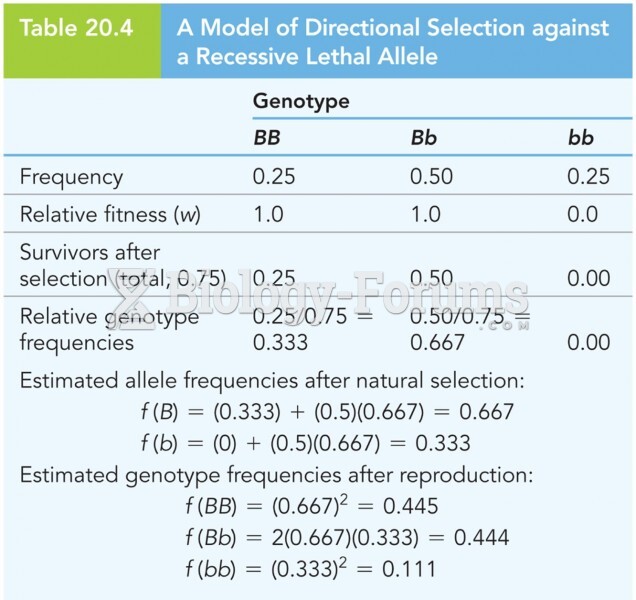|
|
|
Pink eye is a term that refers to conjunctivitis, which is inflammation of the thin, clear membrane (conjunctiva) over the white part of the eye (sclera). It may be triggered by a virus, bacteria, or foreign body in the eye. Antibiotic eye drops alleviate bacterial conjunctivitis, and antihistamine allergy pills or eye drops help control allergic conjunctivitis symptoms.
Multiple experimental evidences have confirmed that at the molecular level, cancer is caused by lesions in cellular DNA.
Approximately 500,000 babies are born each year in the United States to teenage mothers.
Acute bronchitis is an inflammation of the breathing tubes (bronchi), which causes increased mucus production and other changes. It is usually caused by bacteria or viruses, can be serious in people who have pulmonary or cardiac diseases, and can lead to pneumonia.
Cocaine was isolated in 1860 and first used as a local anesthetic in 1884. Its first clinical use was by Sigmund Freud to wean a patient from morphine addiction. The fictional character Sherlock Holmes was supposed to be addicted to cocaine by injection.
 A demand delivery system uses a fuel-pressure regulator attached to the fuel pump assembly inside ...
A demand delivery system uses a fuel-pressure regulator attached to the fuel pump assembly inside ...
 Schematic of a mitochondrion and Computer model generated from electron tomograms of a mitochondrion
Schematic of a mitochondrion and Computer model generated from electron tomograms of a mitochondrion





